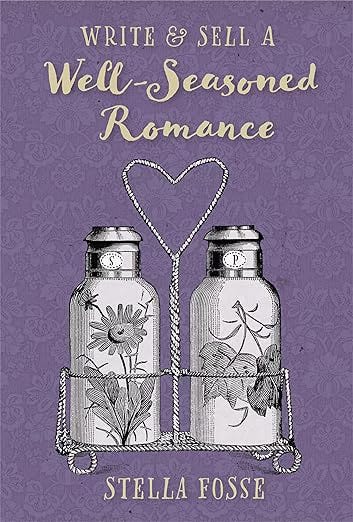Let She Who Grows Her Chin Hairs Cast the First Stone
When to Critique An Older Woman's Appearance: How about never?
I have had it up to here with women who critique other women’s appearance—and that includes me. I was totally judgmental back in 2023 when I saw the photos of Madonna at the Grammys. Her look provoked an uncanny valley reaction: Madonna seemed to me like an android, like an attempt to make a human face from clay. And then I read what Madonna thought about reactions like mine: How she had been subjected over and over again to misogyny and ageism. I had become part of that problem, even though I knew better. I know damned well that when women find it necessary to change our bodies to meet social or career expectations, the issue is about the system, not the individual woman.
By the time Martha Stewart’s Sports Illustrated cover came along, I knew to expect the attacks, many from other women: Martha at 81 must have had some “work” done to look that good; Martha is privileged; Martha was photoshopped. And of course, the old standby: Martha can’t possibly be a natural blonde at that age.
Step back a minute and think how many magazine covers feature younger women who have had plastic surgery; younger women of privilege; younger women who are photoshopped; younger women who dye their hair. Now ask yourself: Why is an older woman supposed to be purer than Caesar’s wife, while younger models get a pass?
The magazine was criticized, too, for choosing this particular older woman. But let’s put that choice in context. For years, Sports Illustrated swimsuit covers were an endless parade of young cis blond thin white women. More recently women of color have been featured, and in 2021 a trans woman appeared on the swimsuit cover. The magazine still has a way to go to become diverse in selecting its models. I would love to see Lizzie on the cover. But the choice of an 81-year-old woman—regardless of her privilege—is a step in the right direction.
Sniping about the appearance choices of women after midlife is not only counterproductive, it also betrays, as Madonna pointed out, a whole lot of gendered ageism. And on top of that, when older women critique each other about our looks, we reveal a surprising level of internalized gendered ageism—even among women in the anti-ageist community.
Purity testing about appearance can also have a religious aspect. Believe it or not, there are websites (that I refuse to link) where fundamentalist women talk about “God-Given Gray.” The idea is that when a woman’s hair turns gray, God did that, so we should leave it alone. I want to ask these women: But didn’t God also make hairs sprout on your chin after menopause? Are you growing out your chin hairs as a sign of purity?
With that in mind, I’ve come up with a new standard: Let she who grows her chin hairs cast the first stone. In other words, before a woman critiques another woman for failing some kind of test about her “natural” appearance, the critic should make sure that she herself is absolutely pure.
Ladies, here are some criteria for your personal purity test:
· Do you grow your chin hairs? No? Then stop criticizing women who also modify their appearance.
· Have you stopped wearing brassieres out of concern they might oppose the effects of gravity on your aging body? No? Ditto.
· Have you thrown out all your makeup because even lipstick might disguise your age? No? Ditto again.
· Have you given up trying on clothes before you buy them, for fear that your choices might be flattering? No? Bingo.
Bottom line: Unless you’re on the pure side of each criterion, please back off.
It would be sexist to expect more from older women than from older men. And given that men are generally less bothered by chin hairs, they need a different set of purity criteria before they criticize older women’s appearance.
So, men, let’s try out this test:
· Have you stopped wearing deodorant? No? Then you’re not pure enough to criticize how Women of a Certain Age present ourselves to the world.
· Do you still wear T shirts from your teen years even if they don’t fit? No? Ditto.
· Did you buy your first sportscar after age 50? Come on. Don’t even open your mouth.
· Are you, in fact, a woman? No? Then give it up.
How about it, guys? Did you pass all four? (And I didn’t even ask about the little blue pill; I’m taking it easy on you fellas.)
Everyone of every gender faces age discrimination. But we know from the research that ageism and appearance discrimination affect women earlier and more significantly than men. So let’s stop the criticism of older women for the adaptations we make—of every kind, from ditching our chin hairs all the way to Botox. If we want to criticize something, let’s focus on the systemic issues that push women to make particular choices.
And, too, let’s celebrate the freedom we have as older women to express ourselves, through our appearance and our actions. Let’s cheer Women of a Certain Age who dye our hair purple, wear “inappropriate” clothing, and date younger men. Let’s applaud older women who lift weights, write novels, and start companies. Women who resume the passions of our youth, or find new passions after fifty, sixty, and beyond: Making jewelry, starting companies, charting the stars.
Strong women become stronger by lifting each other up. Let us do what we love, and support other women in our choices.
P.S. And while we’re celebrating our freedom, don’t forget that you, too, can subvert the dominant paradigm by writing a Romance novel with vibrant older characters. Get your own guidebook here.





No make up, none, no nips and tucks, but also no chin hairs. Good post! Did you see "When do people stop having sex?", my post last week?
Yes, we women must support each other. Your book is fabulous Stella. I’m going to take it to my writing group and suggest we follow it to collectively write a Highly Seasoned Romance! It will be so much fun 🤩